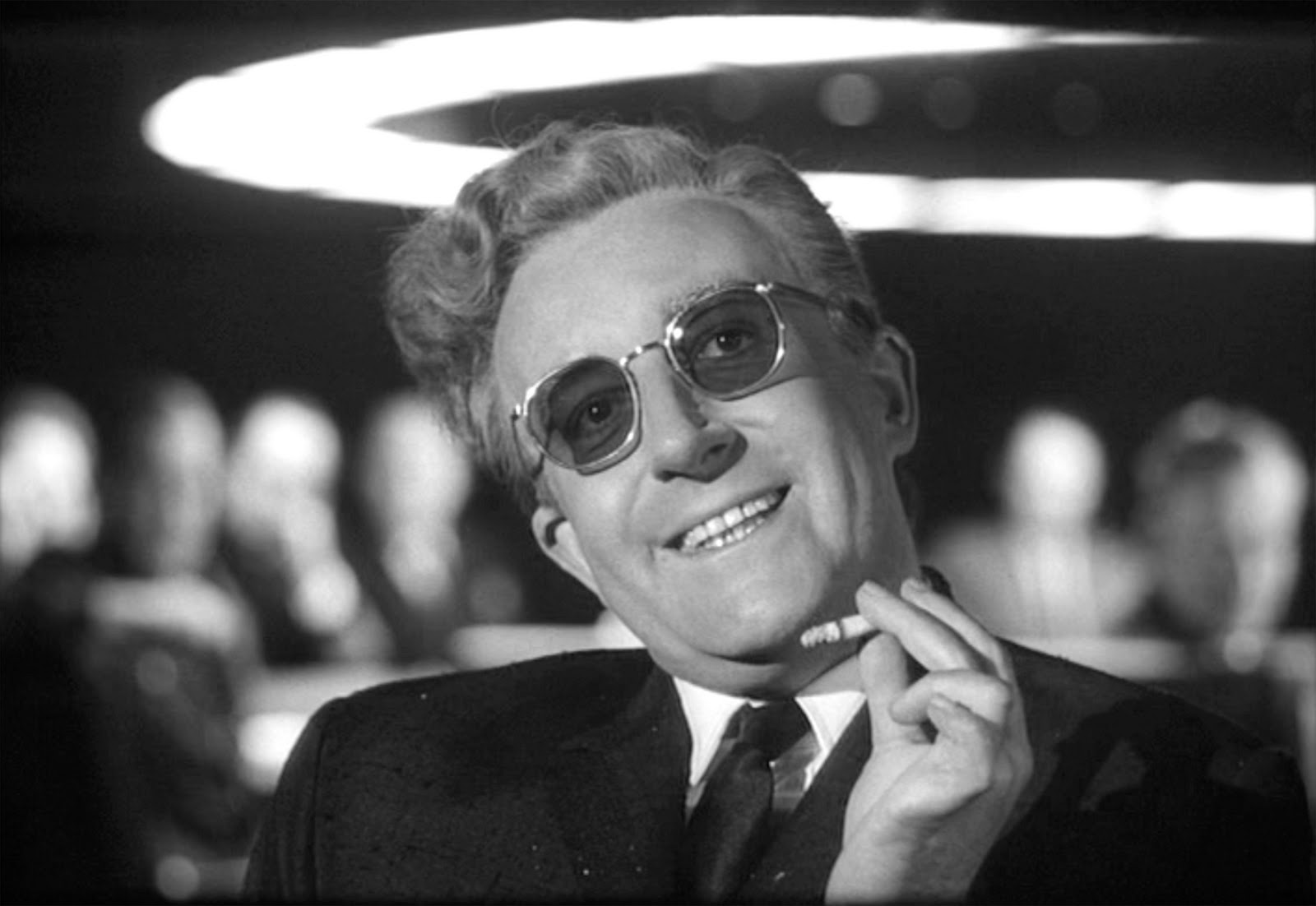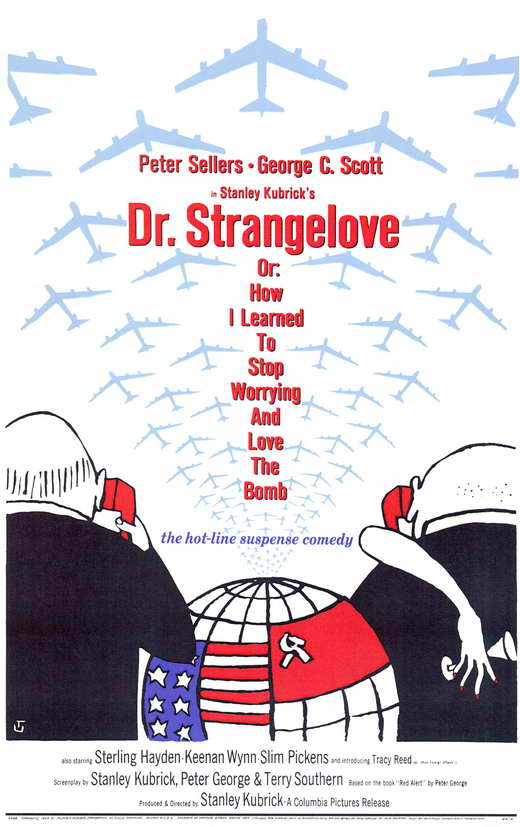
| NYWI HOME PAGE | VISITING WRITERS & EVENTS INDEX |
|
|
 Peter Sellers in "Dr. Strangelove" |
Screening of Stanley Kubrick's "Dr. Strangelove Or: How I Learned to Stop Worrying and Love the Bomb"
7:30 p.m. Friday, March 2, 2018
Page Hall, 135 Western Avenue, downtown campus, Albany
Free and open to the public.
Stanley Kubrick's classic satire DR. STRANGELOVE OR: HOW I LEARNED TO STOP WORRYING AND LOVE THE BOMB, based on Peter George's novel Red Alert and filmed at the height of the Cold War between the U.S. and the Soviet Union, depicts an insane Strategic Air Command general who launches an unauthorized nuclear bombing attack on the Soviet Union while a war room of politicians and military brass work frantically to avert World War III. 
Upon its release, the film was met with a mixed reaction. The New York Times film critic wrote, "Stanley Kubrick's new film, called Dr. Strangelove or: How I Learned to Stop Worrying and Love the Bomb, is beyond any question the most shattering sick joke I've ever come across."
Released the same week, a Variety review praised the film: "Nothing would seem to be farther apart than nuclear war and comedy, yet Kubrick’s caper eloquently tackles a 'Fail-Safe' subject with a light touch."
DR. STRANGELOVE was nominated for four Oscars, including Best Picture, Director, Screenplay, and Best Actor in a Leading Role for Peter Sellers, who plays three roles in the film. It was Kubrick's last movie to be filmed in black and white. In 1989, the United States Library of Congress included DR. STRANGELOVE in the first group of films selected for preservation in the National Film Registry.
On the 40th anniversary of the film, Fred Kaplan wrote an appreciation in The New York Times, finding DR. STRANGELOVE "widely heralded as one of the greatest satires in American political or movie history… far more than a satire. In its own loopy way, the movie is a remarkably fact-based and specific guide to some of the oddest, most secretive chapters of the Cold War." Roger Ebert, upon viewing DR. STRANGELOVE multiple times, called it "arguably the best political satire of the century, a film that pulled the rug out from under the Cold War by arguing that if a 'nuclear deterrent' destroys all life on Earth, it is hard to say exactly what it has deterred."
Is DR. STRANGELOVE a Cold War relic or has it aged well? The New Yorker published a reflective review in 2004 on Kubrick's black comedy: "In retrospect, Kubrick’s black comedy provided a far more accurate description of the dangers inherent in nuclear command-and-control systems than the ones that the American people got from the White House, the Pentagon, and the mainstream media."
For additional information, contact the Writers Institute at 518-442-5620.